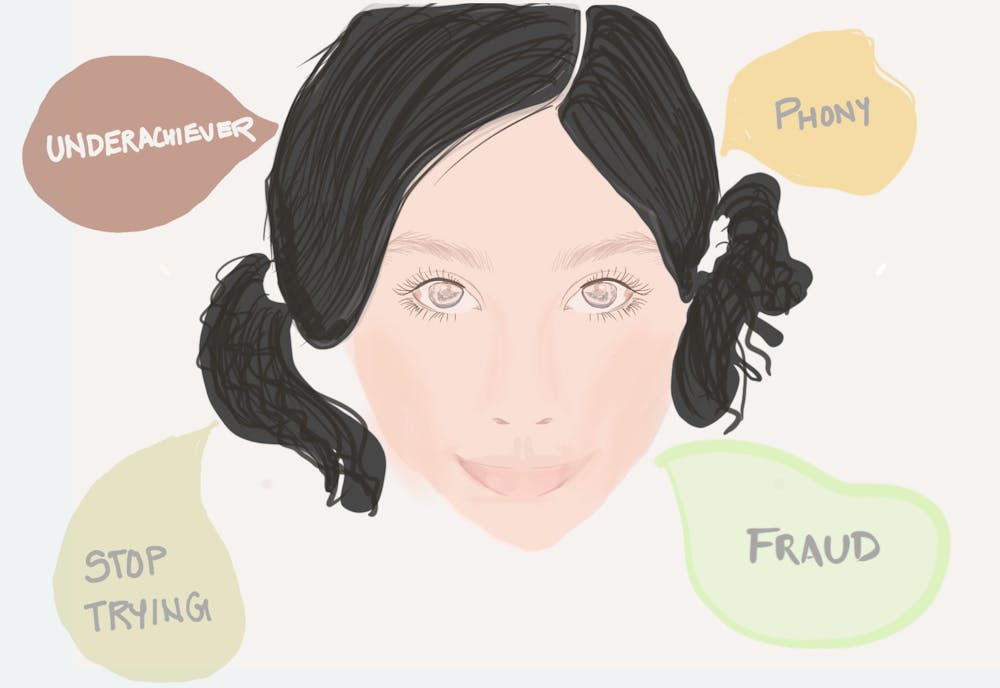If there is one thing I have experienced during my time at IU, it’s the fear that I am not as qualified as my peers. That’s not to say IU’s environment is the culprit, but I can’t help but wonder why I have felt as if everything I do, educationally and otherwise, seems to be a competition.
As I am interviewing for internships in the summer and participating in classes where I am less experienced than other students, I fight with myself constantly over what more I could be doing to succeed. I am fully aware that I am skilled in ways that others are not, as are they, but I can’t help but feel a burning need to impress. If I keep telling myself I need to do more, be better and aim higher, I will never win.
By definition, imposter syndrome is the anxiety-filled inability to recognize self-achievement, despite being high performing in objective ways. Even while sharing the definition, I feel the need to include a disclaimer that I am in no way bragging about my achievements.
Which leads me to my next point — why on earth am I like this? I think in turn of experiencing imposter syndrome, I encourage my own anxiety to form in different ways. Sometimes I feel an excessive need to be in control of everything –– perhaps because my fear of failure is so suffocating, I can’t imagine anything worse.
Even when I do achieve something great, I find it difficult to admit that to myself. Sure, I may have sat at my kitchen table crying over statistics, but even when I succeeded on exams, it still didn’t feel like enough.
The enormous caveat surrounding this entire topic is that even when there may be no perceivable reason as to why I would internally feel this way, ultimately, I still do. To no surprise, almost everyone I have talked to about imposter syndrome seems to feel the exact same way on a regular basis. Our generation is under extreme pressure to be perfect when perfectionism is an unattainable goal.
If I had any advice to share on how to combat these feelings, believe me, I would. Luckily, our friends at the Harvard Business Review have shared some tips that could be beneficial to us all. While I endlessly search for a reason why I feel this way, Kess Eruteya, author of “You’re Not an Imposter, You’re Actually Pretty Amazing,”, says that imposter syndrome is typically heightened when we are undertaking new things. Whether they are responsibilities, hobbies or new roles, Eruteya encourages us to keep a positive mindset. While that seems much easier said than done, with practice, I have learned that continuously reminding myself to celebrate all my achievements makes me feel less like, well, an imposter.
Though it has been a challenge, I have realized that as long as my achievements are my achievements, I feel fulfilled. In other words, if I do not seek reassurance that I have done well from others, I feel satisfied with my abilities and successes.
If there is anything I can leave you with, it's to remind yourself that you’re not alone in feeling this way. Though it seems like somewhat of an unspoken topic, everyone, at one point or another, has made themselves feel as if they are not good enough. I find my own brain to be exhausting at times, but it's the only one you have to live with for the rest of your life. So, work hard to make it a happy place to live.
Thalia Alleman (she/her) is a junior studying journalism and public relations.






